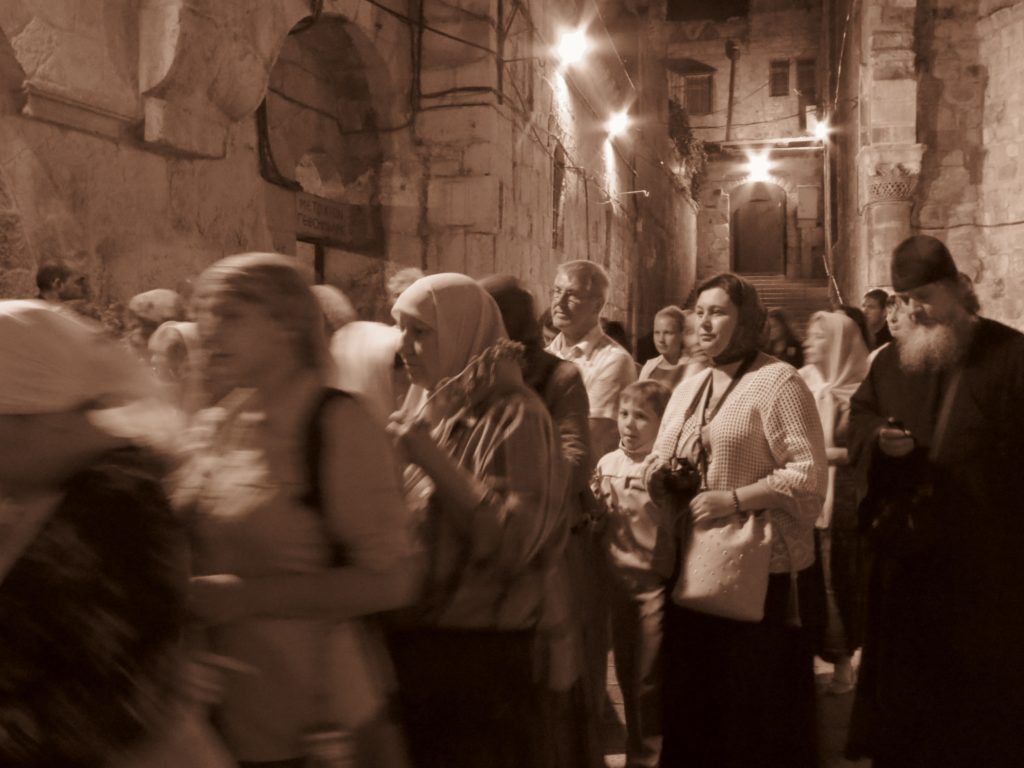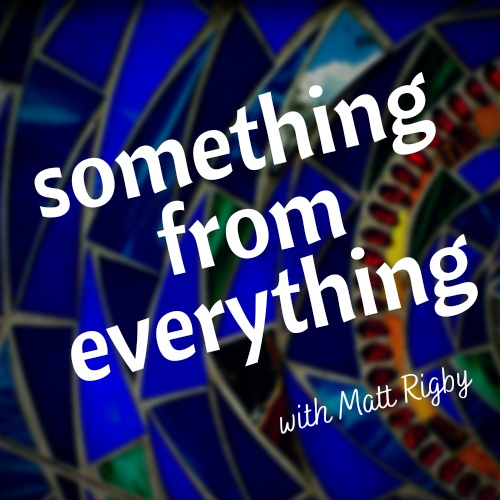
Religion.
There are few words as loaded in our present culture as religion. You may associate it positively with meaning, hope, culture, colour and vibrance… but I’m willing to bet most of us would sooner associate it negatively with rules, power and a rigid set of assumptions about the world.
I am fascinated by so many of the concepts and elements of religion, and even I don’t like the word. Without effort, it serves as the placeholder for everything I don’t like about belief. While words such as spirituality have become vast and diverse enough to be met with inquiry and interest, I don’t find many people who have nearly the curiosity towards religion.
Readers of this blog have almost certainly noticed that I am a huge fan of Krista Tippet’s On Being program. On Being is a program fascinated with the intertwining concepts of spirituality and religion, and in each and every interview, Krista Tippet enquires into her guests’ religious or spiritual background growing up. Agnostics, Atheists, Buddists, Christians, Jews, Hindus, Muslims etc… each and every guest has had those terms (partially) defined for them at a young age. Just as you and I have.
I love that this approach allows the guest to define their spiritual background in their own terms. It acknowledges that we are broader and more diverse than general religious labels, and even more diverse than more specific labels such as denominations or sects.
I count myself among those who are far less comfortable with these familiar labels and traditions religion has offered. I don’t currently attend any church, and I am by no means alone in staying home on Sundays (or much more often, at the hospital working). Statistics Canada states that in 2008, attendance at a weekly religious service was down to 21% of those over age 15, which dropped 9% from about 20 years ago. Canada has been a much more secular country than our neighbours to the south, but the United States has seen a similar, but much sharper, decrease in regular attendance of religious institutions. Though a much higher percentage of Americans regularly go to a religious institution than Canadians (53% in 2014), that number is falling much faster, 10% less than a decade ago. (Thanks here to Diana Butler Bass who references this trend in her latest wonderful book, “Grounded”).
More and more it appears that even among believers, the older structures and divisions are less and less embraced. More and more it appears that people want to shake off their religious labels.
And some would like to see an abandonment of religion altogether. Many people outside religious communities look at the decline of religion as a death long coming, and long deserved. An old dry and cracked skin that humanity has outgrown and needs to shed.
It’s hard not to see their point.
When religion is seen as a hot bed and breeding ground for extremism (within many camps), when basic human rights such as marriage equality are denied or hindered due to the vocal opposition of the religious right, and when sexism, misogyny and a culture of accepted abuse is not only ignored, but encouraged or ordained, it is hard to not to understand (if not join in) the celebration of religion’s death knell.
But what if religion was extremely important for our species? What if religion could be a gift, our birthright as humans?
That is the question that has been raised by Alain de Botton in a recent On Being interview. A prominent philosopher, author and speaker, de Botton calls out and disseminates the important past roles of religion in human society, and it’s important impact on the individual. Some of the standout observations that are mentioned in the interview include: a view of human nature that is both blessed and flawed, the observation of the difference between material and moral power, and the repeated attempt to answer questions of meaning and morality. He acknowledges that while our secular education may teach us basic and complex skills for our workplace, it is wholly unprepared/unwilling to give instruction on how to love, how to raise children, how to face the mortality and suffering around and within us.
Most surprisingly, this champion of the best aspects of religion is a convinced atheist. Alain de Botton is perhaps best known as founder and content currator/creator for “The School of Life”. This initiative attempts to take the best aspects of religion, without belief in the divine. It seems simultaneously amazing and absurd. In sorting through and presenting the best aspects of religion, his work has been seen as intriguing and valuable to both atheists and believers alike.
Perhaps strangest to me is how comforting I find de Botton’s findings. His fascination with and appreciation of the best aspects of religion seems deeply rooted in a care for all humanity. He boldly relates that “an awful lot that seems to us intrinsically religious is not; it’s part of the treasury of mankind. These religions at their highest points, at their most complex and subtle moments, are far too interesting to be abandoned merely to those who believe”. While the loudest and most strident Atheists we hear tend to be propelled by conflict with religious groups (and met by equally combative religious voices in turn), de Botton’s view sounds like the advocating for all humanity.
“Part of the treasury of Mankind”
Perhaps because I had always viewed religion as distinctly spiritual, I never stopped to think how obviously human it also is. For me, to look at the teachings/ rituals/ poetry/ art/ celebrations/ feasts, etc… as my inheritance as a human being doesn’t make it less spiritual or focused on the divine. Instead it retroactively fills what I viewed as (at it’s worst) stark and regressive and dead with new life and possibility. This is how my ancestors oriented their life towards each other and divinity. This is how they inhaled and exhaled together singing communal songs. This is how they remembered their most important stories, with courses of food and wine and singing and dancing. This is how they integrated the wisdom of their ancestors on how to live.
In an earlier post, “The Territory We Have Already Entered”, I focused on David Whyte’s assertion that alertness was the hidden discipline of familiarity. I think that concept has a lot of application within religion as well. Religion can give us familiar terms to identify with amidst the new and unknown that we are faced with everyday. And at the same time, religion has the opportunity to disrupt our familiar day to day settings with a word or ritual from ages long past. It can confront us with a worldview that is not our own. In both cases of familiarity, religion can be a gift, but alertness remains the hidden discipline in either. We have a crucial role in understanding and evaluating what these rituals and teachings mean for our lives today.
Just because our ancestors used these words/ prayers/ teachings/ songs/ feasts and dances… doesn’t mean we have to. It is my personal opinion that there is a lot within the old power structures that is detrimental to our personal and communal growth as people. Some aspects of these power structures worked for a time, and now they don’t. Some ideologies should never have been propagated. A great deal of religion may have to die.
But not all of it. Because (like almost everything) it is a mixed blessing. An account of those struggling and grappling with humanity and divinity, just as we all do today.
A treasury for all mankind.

Leave a Reply